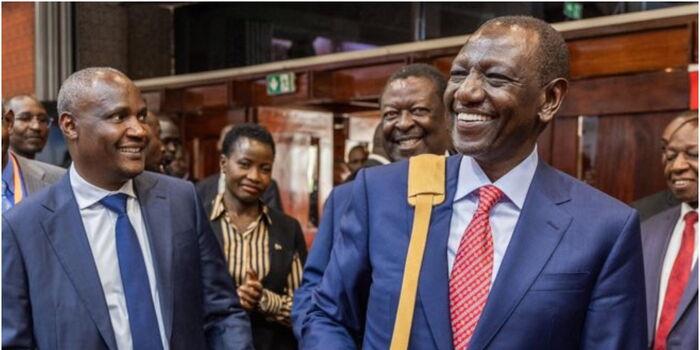The government of President William Ruto is moving fast to sell a number of state-owned companies as part of its plan to raise money for the 2025/2026 national budget.
Treasury Cabinet Secretary John Mbadi has revealed that the government is targeting Ksh149 billion from privatization proceeds, money that will be plugged directly into the budget to help close funding gaps.
This plan was outlined in the Annual Borrowing Plan for the upcoming financial year. While the report did not list exactly which companies will be sold first to raise the funds, Treasury has already factored the money under domestic financing.
In total, the government is seeking to mobilize Ksh613.5 billion locally to cover budget shortfalls.
According to Treasury’s breakdown:
- Ksh634.8 billion will come from issuing government securities,
- Ksh149 billion will be sourced from privatization of state enterprises,
- This will be balanced out by Ksh1.1 billion in domestic loan repayments and Ksh181 billion in account adjustments.
Strategic vs. Non-Strategic Companies
Since President Ruto publicly announced the government’s intention to sell or shut down some corporations, a classification exercise has been done.
Out of 240 public enterprises, 33 have been labelled as “strategic” and will remain under government control, while 207 have been marked as non-strategic and are candidates for privatization.
The Privatization Authority has already identified 45 companies for the first phase of the programme, with more lined up in later phases. Some of the entities approved for sale include:
- Consolidated Bank of Kenya
- Agro-Chemical and Food Company (shares under ADC & KDC)
- Kenya Wine Agencies Ltd (KWAL)
- Chemelil Sugar Company
- Development Bank of Kenya (DBK)
In June 2024, the Cabinet also gave the green light for the sale of government stakes in six listed companies: East African Portland Cement, Nairobi Securities Exchange (NSE), HF Group, Stanbic Holdings, Liberty Kenya Holdings, and Eveready East Africa.
The Kenya Pipeline Company (KPC) Sale
One of the biggest deals in the pipeline is the privatization of the Kenya Pipeline Company (KPC), which was reinstated on the privatization list in July 2024.
The government intends to reduce its ownership from 100% to 35%, selling off the remaining 65% through a public offer at the Nairobi Securities Exchange (NSE). The sale is projected to fetch about Ksh120 billion, forming the bulk of the Ksh149 billion target.
The process has already gone through the National Assembly Committee on Energy and the Select Committee on Public Debt and Privatization, both of which have submitted reports to Parliament. Once MPs return from recess, the report will be tabled in the House for debate and approval.
Safaricom and Other Big Names
In addition to KPC, Treasury has its eyes on Safaricom shares, where the government currently holds about 35%. In May, CS Mbadi hinted that the state is ready to offload part of this stake as part of the wider plan to generate money from privatization.
Legal Framework and Timelines
The whole process is guided by the Privatization Act, 2023, which requires both the Cabinet and Parliament to approve privatization proposals.
By law, they have 60 days to make a decision, and if they fail to act within 90 days, the proposals are automatically ratified.
This urgency explains why the Ruto administration is pushing for a quick sale: the funds are not just for reducing debt but are already booked into the 2025/2026 budget.
The faster the companies are sold, the sooner Treasury can shore up its revenue to plug financial gaps and reduce reliance on borrowing.
Join Government Official WhatsApp Channel To Stay Updated On time
https://whatsapp.com/channel/0029VaWT5gSGufImU8R0DO30


